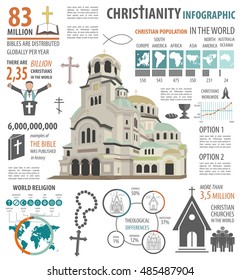Uncover The Captivating Background Of Catholic Institutions And Their Deep Result On Education-- Could Their Customs Supply Understandings For Future Discovering?
Uncover The Captivating Background Of Catholic Institutions And Their Deep Result On Education-- Could Their Customs Supply Understandings For Future Discovering?
Blog Article
Uploaded By-Petersson Howe
When you consider the background of education and learning, Catholic institutions stand apart for their deep-rooted practices and enduring influence. These organizations started as a means to infuse confidence and worths, but they have actually adjusted extremely over centuries. Today, they play a vital role fit not just scholastic success but likewise moral integrity. What' see page is how they've taken care of to flourish in the middle of altering social landscapes, raising questions regarding their future importance and effect.
The Beginnings of Catholic Education And Learning: A Historical Perspective
Catholic education traces its roots back over 1,500 years, when very early Christian areas identified the need for structured discovering. You'll discover that these communities aimed to hand down their belief and worths through education.
Monasteries and cathedral schools came to be centers of discovering, supporting both spiritual and intellectual development. As you delve much deeper, you'll see that the educational program often included viewpoint, faith, and the liberal arts, created to form versatile individuals.
Gradually, the Church developed more formal institutions, making certain that education and learning remained available to all. The dedication to mentor moral worths and promoting a sense of community has continued with the centuries, shaping the academic landscape and influencing numerous lives worldwide.
This enduring heritage remains to influence Catholic education and learning today.
The Development of Catholic Institutions Through Cultural Contexts
As societies developed, so did the role of Catholic institutions, adjusting to the cultural contexts in which they existed. In the early years, these establishments focused mostly on spiritual instruction, however as neighborhoods branched out, they started to integrate local languages, custom-mades, and educational needs.
You 'd see that Catholic schools usually came to be centers for social cohesion, cultivating a feeling of belonging among trainees from numerous backgrounds. In Related Site , they dealt with societal issues, such as destitution and discrimination, by providing available education and learning for all.
As you discover different cultures, you'll see how Catholic institutions have actually moved their educational program and teaching methods, showing the values and difficulties of their settings while holding to their fundamental objective of faith and academic quality.
The Modern Duty and Effect of Catholic Schools in Society
In today's globe, Catholic colleges play an important role in shaping not just the instructional landscape, but likewise the broader neighborhood.
You'll locate that these organizations highlight worths like respect, empathy, and social justice, cultivating all-around people that contribute favorably to society. By focusing on scholastic excellence and ethical development, Catholic schools prepare trainees for future difficulties, nurturing crucial thinking and management abilities.
They frequently serve diverse populaces, linking spaces in accessibility to high quality education and learning. Furthermore, you might discover their dedication to service, encouraging students to take part in area outreach and volunteer job.
This blend of education and ethical advice makes Catholic colleges a substantial pressure, cultivating accountable citizens that can influence their neighborhoods for the better.
Verdict
Finally, Catholic institutions have a rich background that's shaped their enduring influence on society. You've seen exactly how they've adjusted to various social contexts while preserving a commitment to faith, values, and academic quality. Today, they continue to play an essential duty in fostering community, advertising social justice, and nurturing liable people. As you reflect on their legacy, it's clear that Catholic institutions continue to be a powerful force for positive modification worldwide.
